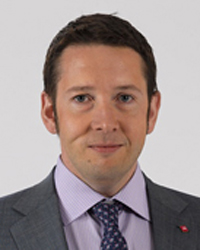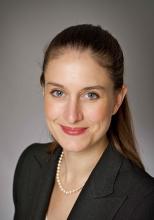CFO Evgeny Fetisov talks about Russia's new individual investment accounts, the impact of recent reforms and plans to attract new listings
Evgeny Fetisov is CFO at the Moscow Exchange (MOEX). He joined the firm shortly before its IPO in 2013, having previously worked at private equity firm Da Vinci Capital. At the same time, he served as a board member at RTS, as well as with the corporate governance commission and as deputy head of the budget commission following RTS’ merger with MICEX.

Evgeny Fetisov, CFO of Moscow Exchange
Tell us about the recent reforms that were implemented at MOEX?
The whole plan started with the merger of the two Russian exchanges RTS and MICEX back in 2011. Since then we’ve had a number of laws that have changed, starting with the creation of a Russian central securities depositary for our group. We have a new law on exchanges, a new law on clearing, a new law on insider trading, a new law on listings and a new corporate governance code, which was adopted last year by both the Russian government and the Central Bank.
The code, which was developed in cooperation with OECD and EBRD to update the one in place for the last 10 years, is based on international best practice and includes more stringent requirements for independent directors and a new rule for disclosure and information.
What’s the current listing landscape at MOEX?
It’s definitely not a great year for IPOs although it’s better than last year. We’ve had two listings so far this year and currently there’s a pipeline of several companies we’re working with. We’re actually seeing a good amount of placements on the fixed income side, which is exceeding last year’s numbers and even [those of previous years], so we’ve seen good dynamics there but again things could be better – it’s not a bull market!
What are your plans to attract new listings?
It starts with promoting ourselves like a marketplace of choice, showing that the Russian infrastructure is on par with global peers, that it’s as efficient and reliable – yet less costly – than others and building a longer term local investor base with institutional and retail shareholders. In the past year we’ve seen the local institutional base behave differently from the global ‘hot money’ we see coming in and out of the market.
This year Russia has introduced individual investment accounts – similar to the 401k in the US or the ISA in the UK – which allow people to get tax benefits when they invest in securities and hold them for more than three years. Since the beginning of the year we’ve seen the opening of 50,000 accounts and we estimate that by 2020 there will be 500,000, representing 1 tn roubles in assets. So we think this is a very positive development for our market.
What are MOEX’s key selling points?
We have one of the broadest offerings of products: equities, fixed income, derivatives, FX, money market, commodities and we’re vertically integrated so we actually capture the whole value chain. It’s quite a unique proposition for our clients and one that other exchanges are starting to follow. One of the important things for us is that we’ve seen more interest towards locally-traded shares and we think that’s the direction the market is taking. Before we made all these reforms – migration to a T+2 settlement in equities, the creation of a central securities depositary, the introduction of centralised clearing – we were actually seeing more Russian capital flows coming to London than to Russia, and now this is reversing.
As a listed company, have you been targeting international investors?
We have a fairly balanced and diverse shareholder base, with more than 400 institutional investors. Our free float is more than 50 percent so we don’t have a majority shareholder – our largest shareholder being the Central Bank of Russia with 11.7 percent.
Since the very beginning we’ve been active with international investors so we’re constantly on the road and we do at least two non-deal roadshows a year. We visit New York and London four to five times a year and we also go to Asia and the Middle East. In total we attend more than 200 investor meetings per year. The share price has gone from 55 roubles at the time of listing to 85 roubles, which we think is a fairly decent performance given the overall market environment these past two years.
What is the most popular question from analysts and investors at the moment?
One thing that distinguishes us is that we have a centralized risk management. Other exchanges either don’t have that within their group or they have a two-tiered clearing system, which means they also have clearing banks working for them. Given that we have a centralised risk management we collect a lot of client collateral, and this is something investors don’t necessarily understand from the beginning. As a result, that’s one of the most frequently asked questions during our meetings.
Do you believe the role of an IRO in Russia is becoming more strategic?
When I joined the company, one of my primary tasks was to set up the IR function. We invest a lot of top management effort in building that communication with investors and investor societies. As a stock exchange we think we should be leading by example. We strive to be the most transparent, open, and efficient in terms of IR communications and we believe the successes we’ve had in expanding our investor base and in seeing our share price and trading volumes increase is a result of this.










